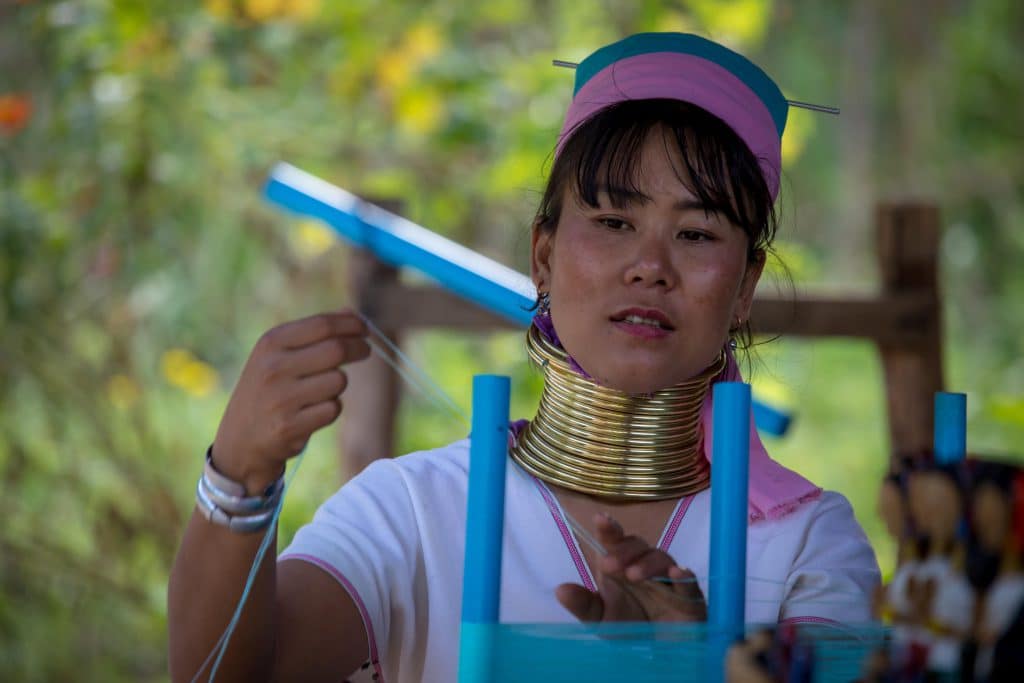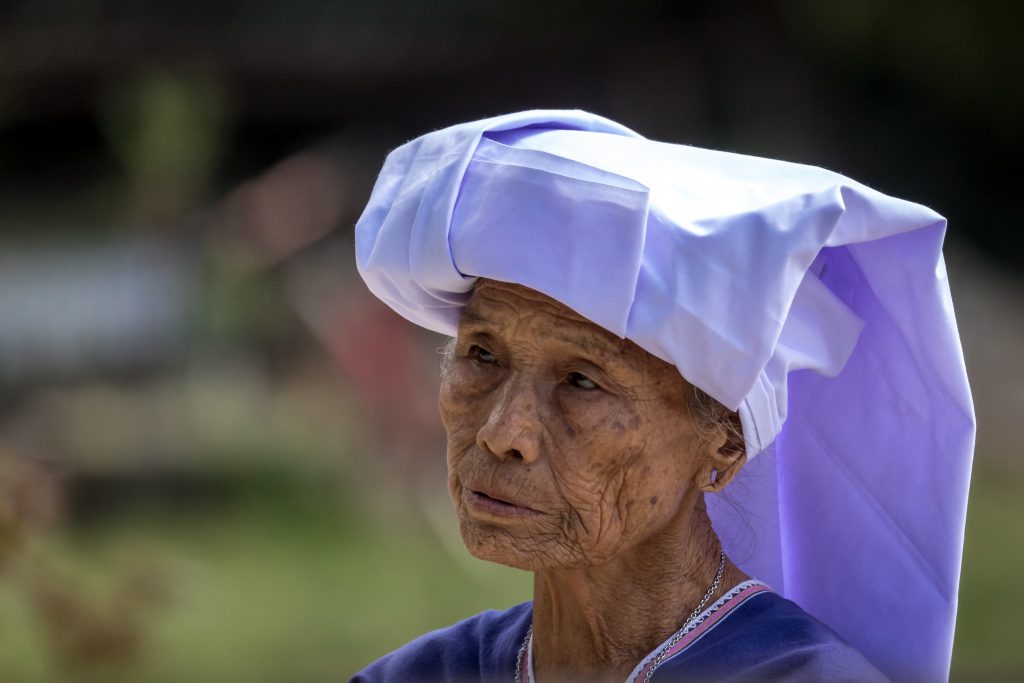The Karen/ Kayin Tribes
The roughly seven million Karen or Kayin, as they are called in Myanmar, live mainly in South-Eastern Myanmar and at the Thai-Burmese border. The Karen share a common Sino-Tibetan language, however are divided in a diverse range of subgroups. The Kayan Lahwi (or Padaung) sub-tribe of the Red Karen is the only group where the women wear the famous brass neck coils. Other tribes are famous for their artistic embroidery.
Traditionally the Karen were animists, believing in the power of the spirits that inhabit the world around them. The "spirits of the land and water" were at the centre of their belief and rituals, as they guaranteed the the fertility of the rice field and thus their survival. However for the animistic tribes of this region the spirits where present everywhere, requiring extreme care in how to treat the nature, neighbours, friends and enemies as well as the ancestors. Today the majority of Karen are Buddhists (60-70%) or Christians (10-20%). However their traditions, fears and hopes live on and old rituals and beliefs are often practiced in parallel to Buddhist merit making and Christian church services.
The Karens' recent history was dominated by their struggle for more independence in Myanmar. The hope of the Karen is that the gradual transition to democracy and federalism in Myanmar will allow for a more peaceful future.



